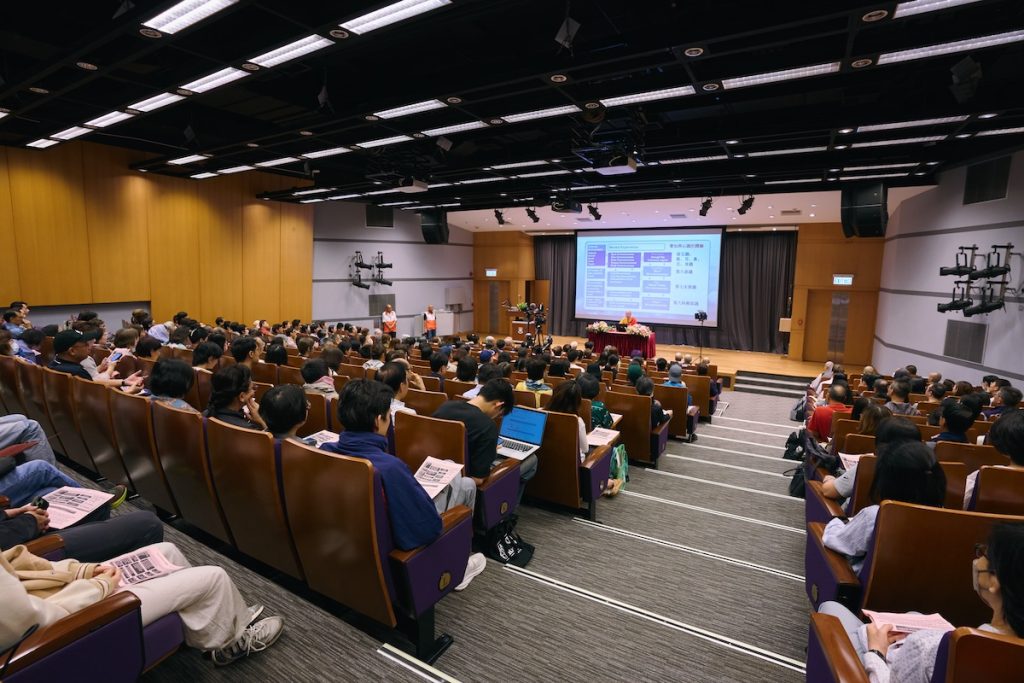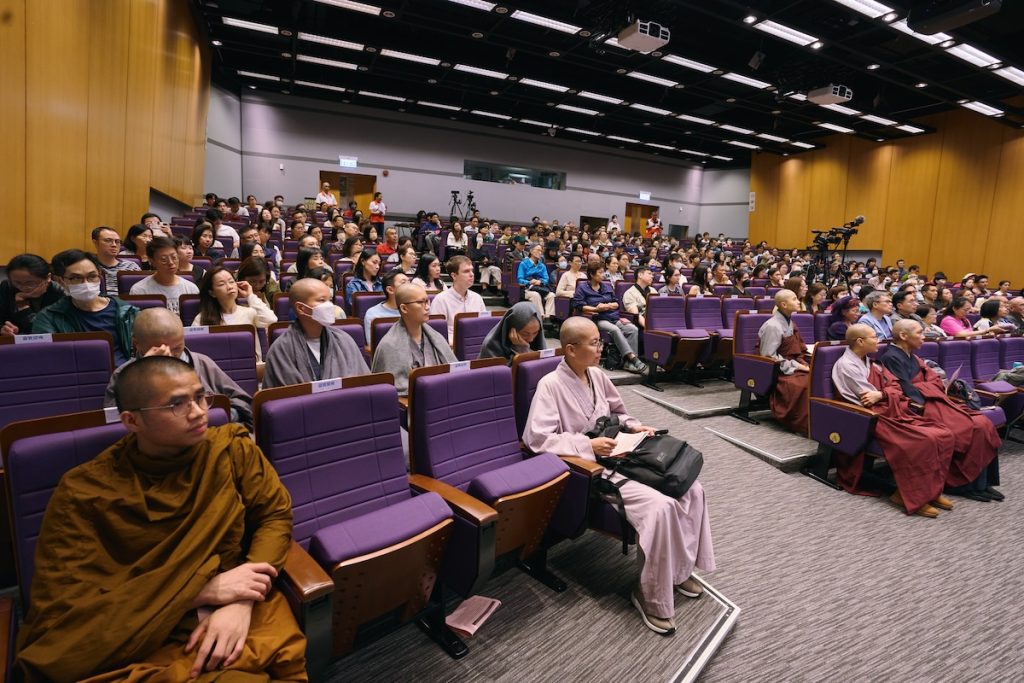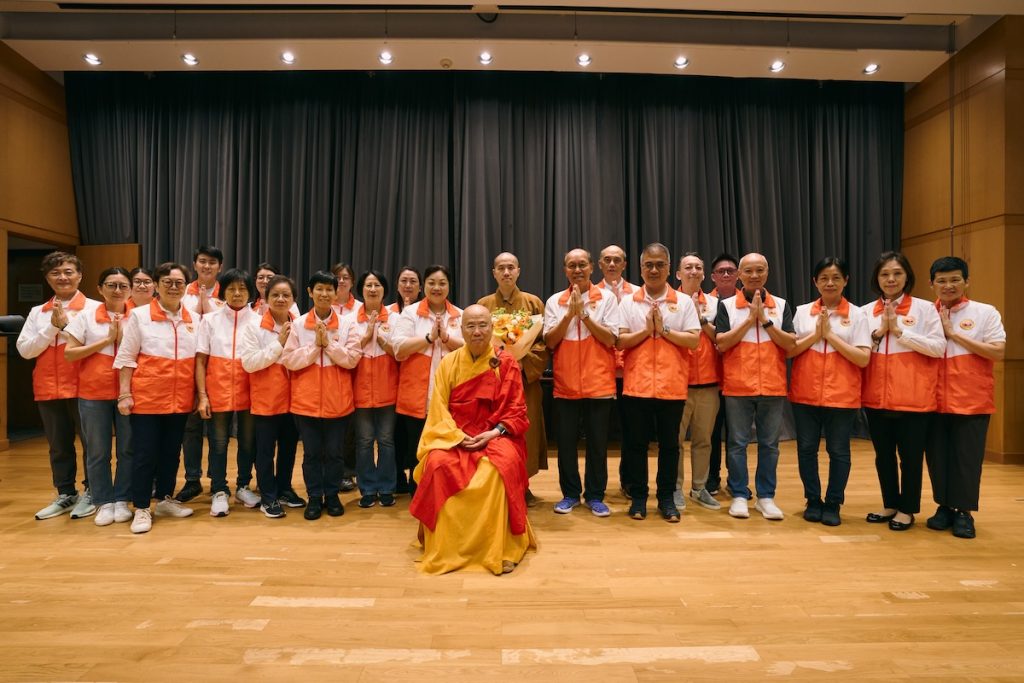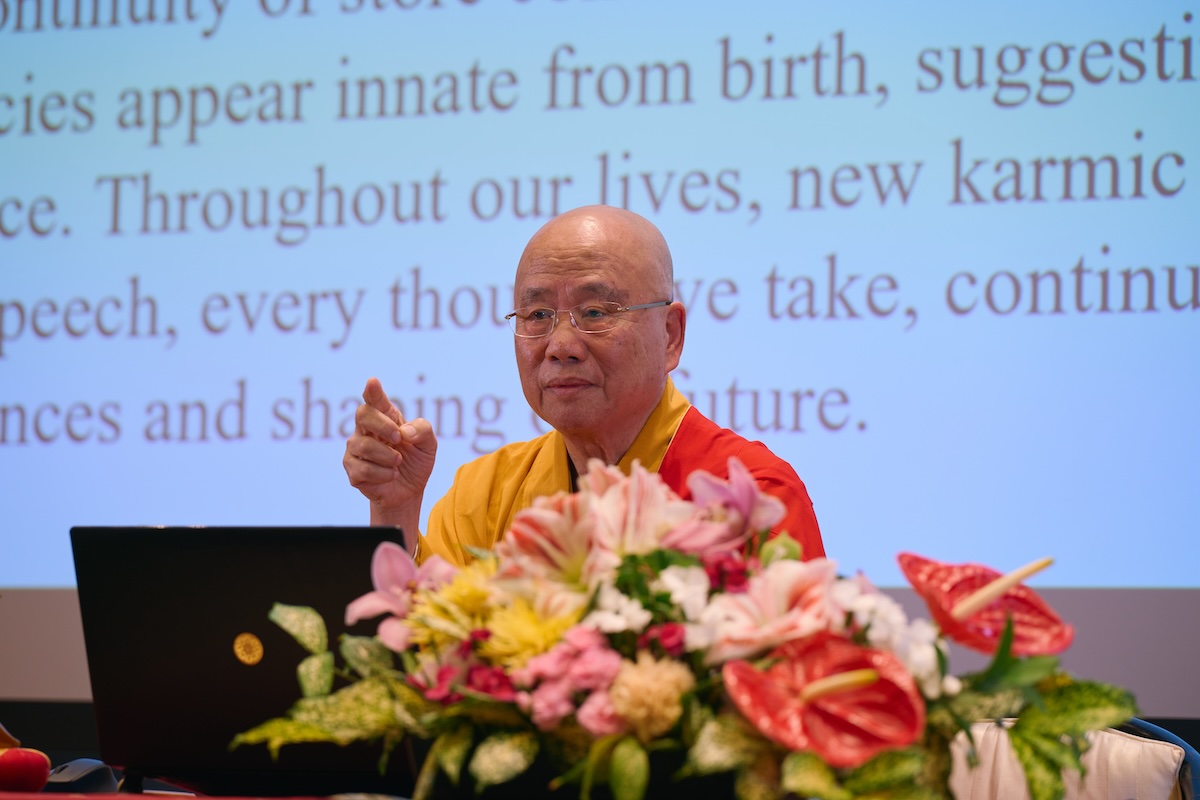Originally published on October 28, 2024 by Raymond Lam of Buddhistdoor Global
Re-posted and revised by Ven. Hong Ci
On Sunday, I had the privilege of attending a Dharma talk by Venerable Guan Cheng at The University of Hong Kong (HKU). A native of Hong Kong, Ven. Guan Cheng is the Abbot of the International Buddhist Temple in Richmond, British Columbia, Canada. Through the International Buddhist Society, he established the Vinaya Samadhi & Prajna Lecture Hall in Hong Kong and has spearheaded numerous charitable initiatives, including Dharma talks and life release (fangsheng) events.

Ven. Guan Cheng exudes a deep treasury of Dharma wisdom, which he delivers with humor, wit, and grounded practicality. His talents extend to his writing, where he presents profound Buddhist philosophy in a relatable, everyday fashion. A regular columnist for the Chinese-language magazine Buddhist Compassion, he has also authored numerous books on happiness in daily life, as well as on Buddhist thought and philosophy.
Consciousness and Transformation
The title of Ven. Guan Cheng’s talk, Transform Your Consciousness, Transform Your Life, highlights a core tenet of Buddhism. Consciousness is central to Buddhist examination because it is both the shackle that binds us to suffering (samsara) and the vehicle that leads us to liberation (nirvana). This preoccupation with consciousness underpins the Yogācāra or vijñapti-mātratā school, a profound philosophical tradition.
Known in English as Consciousness-Only, Mind-Only, or Mere Consciousness, Yogācāra emerged in 4th-century India through the works of the brother-philosophers Asanga and Vasubandhu. It later evolved into distinct Chinese and Tibetan expressions. While these developments are complex, Ven. Guan Cheng distilled the essentials, which are universal to all Yogācāra sub-schools: the world as we perceive it arises purely from the eight consciousnesses (vijñāna).
The Eight Consciousnesses
These eight consciousnesses include:
- The five sensory consciousnesses (sight, hearing, smell, taste, and touch).
- The sixth mental consciousness (manovijñāna), responsible for cognition and mentation.
- The seventh defiled or afflicted mind (kliṣṭamanas), tied to egoistic clinging.
- The eighth store or substratum consciousness (ālayavijñāna), which holds karmic seeds (bīja) and impressions (vāsanā).
The ālayavijñāna, a cornerstone of Yogācāra, offers a framework for understanding karmic continuity. As explained by the Stanford Encyclopedia of Philosophy:
“Relying on the theory of ālayavijñāna, the Yogācāra answer holds that actions produce karmic seeds (bīja) or impressions (vāsanā), i.e., potentialities or dispositions for future experiences and perceptions, which are retained, as in a sort of ‘container’ or ‘store,’ in the ālayavijñāna until they are ready to produce their effects.”
This continuity ensures that karmic results remain within the same personal continuum across lifetimes.
The Case Study of Mr. Lee
To illustrate the practical implications of Yogācāra philosophy, Ven. Guan Cheng shared the case study of Mr. Lee, a fictional yet relatable character whose day spiraled into tragedy due to unchecked emotional contagion.
On his birthday, Mr. Lee was berated by his boss over a minor mistake. Humiliated and angry, he carried his frustration home, where a trivial error by his wife triggered an argument. Their son, distressed by the shouting, lashed out at the family cat. Frightened, the cat ran into the street, causing a driver to swerve and hit an innocent dog.
This chain of suffering could have been avoided, Ven. Guan Cheng explained, through mindful self-awareness and emotional regulation. He outlined a four-step solution:
- Mindful Awareness: Recognize emotions as they arise and understand them as fleeting and impure responses.
- Detachment: Acknowledge the unsatisfactory nature of these feelings and let go of self-clinging and expectations.
- Self-Control: Introspect on the impermanence of anger and frustration, regaining composure more easily.
- Prevention of Harm: Recognize the impersonal and transient nature of emotions, avoiding impulsive actions that spread suffering.
By applying these principles, Mr. Lee could have broken the cycle of emotional contagion, preventing harm to his loved ones and strangers.

A Master of the Dharma
Ven. Guan Cheng’s ability to bridge profound philosophical concepts with relatable, real-world scenarios makes him one of the most engaging Chinese Buddhist teachers in Asia and Canada. His encyclopedic knowledge, coupled with humor and empathy, left a lasting impression.
His talk at HKU offered only a glimpse of his wisdom, leaving the audience eager for more. On his next Dharma Propagation Tour in Asia, a dedicated lecture series at HKU would undoubtedly benefit those seeking to transform their consciousness—and their lives.


